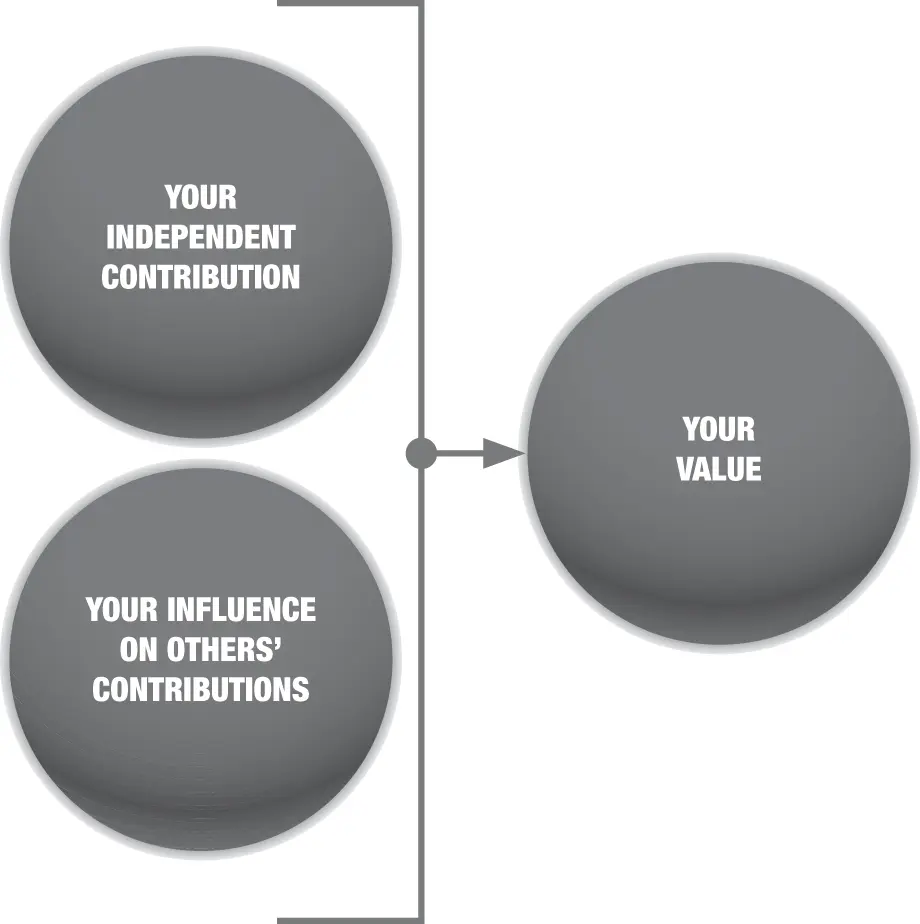One day, after attending a company‐wide meeting where this CFO spoke about the current quarterly results, I felt compelled to approach him. I went up and introduced myself, acknowledged how much I appreciated hearing from him as a young professional, and said I would love to meet him again some time to become better acquainted. I was shocked to hear him say, “That would be nice. I'll have my secretary give you a call to arrange it.”
To my surprise, she called me later that same day to schedule a personal meeting with him for the following week. We spent an hour getting to know each other, sharing stories about our backgrounds and opinions about the company. A relationship was born that grew and lasted for years. His mentorship was invaluable as my career progressed.
A few years later I asked him why he agreed to meet, given how low I was on the organization chart. He said, “Because you asked me. No one else at your level had ever asked to meet with me, and it impressed me that you would.” He also shared that he enjoyed getting to know me and as he learned more about me, it made him more aware of how he could support my dreams.
It was at that moment when I realized the significance of building relationships at all levels of the organization. Such relationships help build your understanding of the culture, how things get done, and what you have to do to add value. Relationships allow you to be present in the minds and actions of others. They expand the number of individuals who represent you in critical conversations about your contributions and potential. I know my company seriously considered me for opportunities because of the CFO's support. And he was better able to assess how I could add value because he was familiar with my skills and capabilities. Who would be willing to support your development if you reached out to them?
The development of relational skills is critical—perhaps even more critical than becoming technically proficient. Like the development of any skill, these take time and effort, but the payoff is mutually beneficial relationships with people who will champion you and your goals.
The third necessary area of professional development is influential: the capability to shape opinions, inspire action, and successfully navigate the formal and informal processes of an organization. Influentially skilled people understand how systems work. They leverage situations and manage relationships to achieve desired outcomes. They position themselves and their ideas to elicit the support of others.
Being influential is often undervalued and derided as brown nosing. People are criticized for playing politics. Yet those who can sell ideas, shape opinions, and engineer mutually satisfactory solutions to problems bring more to the table than those who are only technically proficient. Wouldn't you rather partner with someone who can secure the necessary resources or provide challenging learning opportunities instead of someone who is knowledgeable but ill‐equipped to make things happen? Wouldn't you prefer to work for a leader who can influence a team to work together productively rather than one who is merely an expert in the field? Wouldn't you rather surround yourself with individuals who will advocate for you? Securing resources, bringing a project to fruition, guiding a cohesive team—all these things require influence skills, and most of us want to be involved with others who can exert this kind of leverage.
The capability to influence situations, outcomes, and people increases your value to an organization. When you have the capability to do your job well, your value equals that of your independent contribution. When you are also effective in understanding what motivates others and can increase their engagement and productivity, your value equals your contribution plus theirs. (See Figure 1.2.) Mastering the art of influencing others, regardless of their level or rank, differentiates the average from the great.

Figure 1.2
Yet many professionals assume that they have to have a high‐level title or many direct reports before they can or should exercise influence. As a result, many individuals miss opportunities to develop the influence skills that enable them to accelerate their careers. They don't offer their good ideas because they're not the ones in charge. They feel they have to put up with unreceptive bosses or difficult work groups. When you can look at challenges as opportunities to improve influence skills rather than as situations outside your control, you are much more likely to figure out approaches that will persuade others to adopt your point of view or create more productive working relationships.
Almost all positions afford opportunities to learn how to influence others. Perhaps you want to convince others to go along with a process change or shape the entry of a new person into your work group. Maybe you have a recommendation for a new product or service, or you have a suggestion for enhancing an existing one. These are all good opportunities to practice influencing others.
I recently spoke with a young supervisor in the distribution warehouse for a consumer goods company. He had been assigned to a committee tasked with finding ways to reengineer some of the company's processes; the company wanted people who actually did the work—and this fellow was one of those people. This young man was convinced it would all be a waste of time and asked me how he could gracefully decline.
I encouraged him to stick it out, enjoy the visibility it offered, and look for ways to actively participate. I suggested he start by looking for clues to each person's short‐ and long‐term interests relative to this project. What did each of them envision as the benefits to the company if the group was successful? What were the personal and professional benefits each envisioned attaining? What was each person's point of view? What information did he have access to, given his position, that the other members of the group didn't?
He took my advice and adopted a new outlook. He not only looked for clues at meetings but he also went out of his way to have at least one discussion with each member outside the formal meetings. People got to know him as an individual, and he grew in his understanding of how they thought and what was important to them.
There was a moment when he recognized an opportunity for an improvement with one of the processes. I watched him muster the nerve and confidence to strategically position his idea in the context of what he had learned about the other members of the task force and how it could contribute to the outcomes mentioned by many of them. He was amazed to see people respond so favorably to an idea he proposed. Eventually, a version of his idea was implemented. Imagine what that did for his confidence—and his standing in the company.
What's Required for Success?
I've found that many professionals from a variety of backgrounds initially balk at this emphasis on relational and influence skills. After all, technical skills are easier to measure and evaluate. Organizations place a lot of emphasis on technical skills when outlining required credentials or explaining the rationale behind certain promotion decisions. Yet, in practice, the more subjective relational and influence skills often determine who is given new opportunities. When you choose to develop these skills, you have more control over your own career. You're better able to create momentum and make a bigger impact.
Given their importance, I've devoted entire chapters to relational and influence skills. Chapter 6is about how to develop meaningful connections based on trust and shared objectives. In Chapter 7, I offer guidance on how to develop the influence skills that allow you to shape your reality rather than react to it.
Читать дальше













